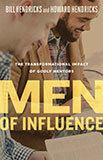When I Grow Up, I Want To Be A ...
Blog / Produced by The High Calling
“Mommy, I know what I want to be when I grow up,” my daughter announces as she props her elbows on the kitchen table. "I’m going to be a missionary in Haiti.”
Her breakfast springs from the toaster. I put two waffles on her plate. “Sounds fantastic, Lydia. But I thought you were going to be an architect.”
She pops a bite of waffle in her mouth. I wipe syrup from her chin. Nah, she says. That was so last month.
My daughter, 10, changes career paths almost as often as her earrings. Wasn’t it just yesterday when she bounded into the living room with a spiral-bound notebook clutched to her chest, while announcing plans to become a poet? I’m pretty sure I detected alarm in her dad’s knitted brow that day. It was a panicked look that said, "She won't be able to pay her light bill."
Before unveiling her poet dream, she sketched elaborate plans for a pet hotel, which she planned to operate. And before that, she wanted to deliver newspapers on a bike route. The news-deliverer dream dissolved the day she read a chart in her social-studies textbook outlining the differences in "skilled and unskilled workers."
That day, she stepped off the bus with a confession: “No offense, Mom,” she said. (Which always means she’s about to say something mildly offensive.) “But delivering newspapers isn’t really that important.”
I cringed. I defended the worth of the laborer. But in almost the same breath, I encouraged her to pursue a four-year college degree. Afterward, I feared that I missed an opportunity to define real success.
But now, over waffles, she is telling me about her plans to teach orphans in Haiti, and I feel absolved. At least a little.
I do have to ask myself this question: How would I react if she declared interest in a job as an "unskilled" laborer? Would I secretly wish that she would—as they say— “live up to her potential"?
I don’t always trust my motives. When I cradled her, new and pink, I didn’t wonder then what she would do for a living. I dreamed about the kind of person she would be.
I would brush my fingers along the curve of her cheeks, hoping that 18 years would be enough to show her what love means. I prayed that she would know why it’s important to say sorry, and to share toys, and to grow things, and to dream big, and to read lots and lots of books.
But “success” has a way of sticking a foot in the nursery door. I know because I also taught her to read early, and I wanted to make sure she understood basic math facts before kindergarten.
I know what success really is. I do. It’s not about being the first student in the class to read chapter books; it's more about sitting by the new kid at lunch. It’s less about stepping up the corporate ladder, and more about staying humble on the climb. It’s not about a six-figure income, but about what we do with the money in our wallets.
Success isn't upward mobility; it's bowed-low humility.
She takes her last bite of waffle, and I wonder: Who will she become when I’m no longer needed to wipe syrup from her chin? Maybe she will teach orphans in Haiti, or lead a large corporation, or write poems for the sake of beauty—by candlelight if she can't pay the bills. Maybe she'll stay home and watch her babies grow big, wondering who they'll become one day.
I hand her a napkin, and smile, knowing that maybe, she might just do all of those things.







